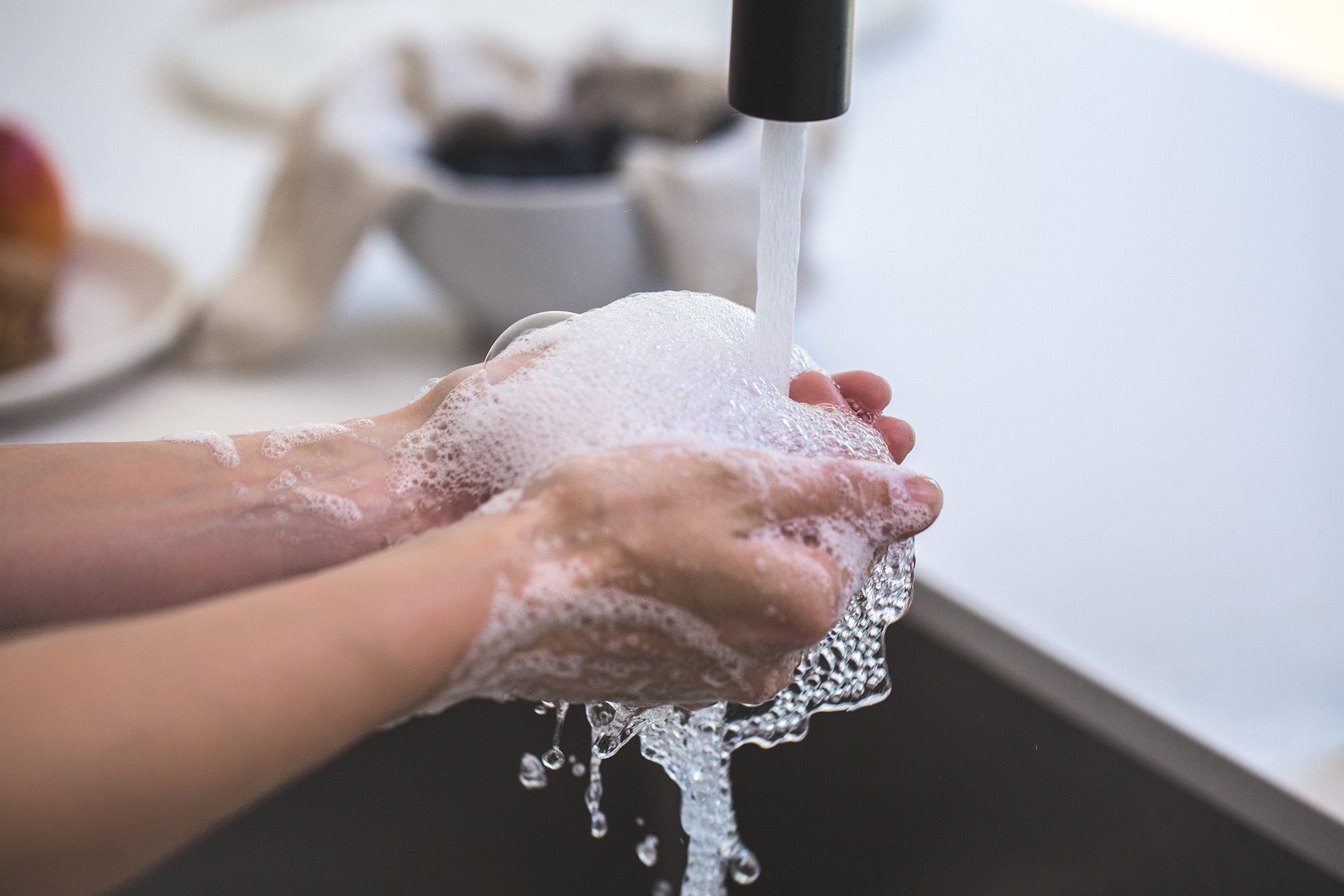Navigating all of baby’s firsts — from first swaddle, to first diaper change, to that first night of sleep — can be a daunting endeavor, and feeding baby his first bottle is no exception. Whether you are serving your little one breast milk or formula, it’s wise to follow a strict cleaning regime in order to keep bacterial contamination at bay. Follow our step by-step-guide for safely cleaning baby’s bottle, from the very first use and beyond.
Choosing A Baby-Safe Dishwashing Soap
With so many products on the market aimed at parents and caregivers, it can sometimes feel like a full time job just navigating the grocery store shelves, especially when it comes to products that come in close contact with your children. You can get overwhelmed and ask yourself how to clean baby bottles and if you can wash them with regular dish soap.
In fact, you will want to avoid many of the ingredients found standard in dish soaps, including surfactants, preservatives, and fragrance.
Here are a few ingredients to avoid:
Sodium Lauryl Sulfate (SLS): A detergent/surfactant used to break down surfaces so cleansers can work more effectively. Linked to Nitrosamines, a strong carcinogen that allows your body to absorb nitrates, another known carcinogen.
Sodium Laureth Sulfate (SLES): Can become contaminated with Dioxane, a possible carcinogen, which the liver has a difficult time metabolizing and so it remains in the body for an extended period of time.
Artificial Fragrance: A major cause of allergic reactions, fragrances can contain thousands of chemicals, including phthalates. Phthalates are man-made chemicals that can have a negative effect on hormone levels. Because fragrances are protected as a “trade secret”, their ingredients are not required to be listed on the label.
Many of these potentially harmful ingredients are found in conventional dish soaps and other cleaning liquids. Knowing this, it may not be safe to wash baby bottles with dish soap.
While many products are targeted at caring for baby, this doesn’t at all guarantee a mild, baby-safe solution can be found inside that pastel package. Rather than opting for products marketed as “baby-safe,” a better bet is to use The Environmental Working Group, a non-profit, non-partisan organization dedicated to protecting human health and the environment, as a tool to select a dishwashing soap that has been awarded an A-rating.

First Use: Sterilize Bottles In Boiling Water
While it’s not necessary to sterilize bottles after each use, it’s highly recommended to do so before the first use.
It’s easy: simply boil all bottle parts in water for five minutes. There is one exception to this rule, however: if you have well water, you may want to consider sterilizing more frequently.
Manual Cleaning: Soap, Hot Water, And A Bottle Brush
Separate all parts. To wash baby bottles, dismantle nipples, caps, rings, bottles, and attachments to rinse and clean.
Prepare water. Rinse all parts, then fill a large, clean bowl in the sink with hot water and add mild dishwashing liquid, allowing all pieces to soak for a minute or two.
Clean thoroughly with a bottle brush. Invest in a bottle brush that will be used exclusively for washing baby’s bottles — no contaminating sponges here. Spin the baby bottle brush inside each bottle and nipple, then run the soapy water through the nipple hole to flush out any lingering residue.
Rinse and dry. Rinse all parts under running water and place them on a bottle rack to drain and dry.
Dishwasher Cleaning
Check the manufacturer’s labels on all of your bottle parts to make sure each item is dishwasher safe. If so, washing and drying in a dishwasher is safe as long as you use a heated wash cycle and heated drying cycle.
Is there a safe dish soap, bottle brush, or drying rack you swear by? Sound off in the comments below!







